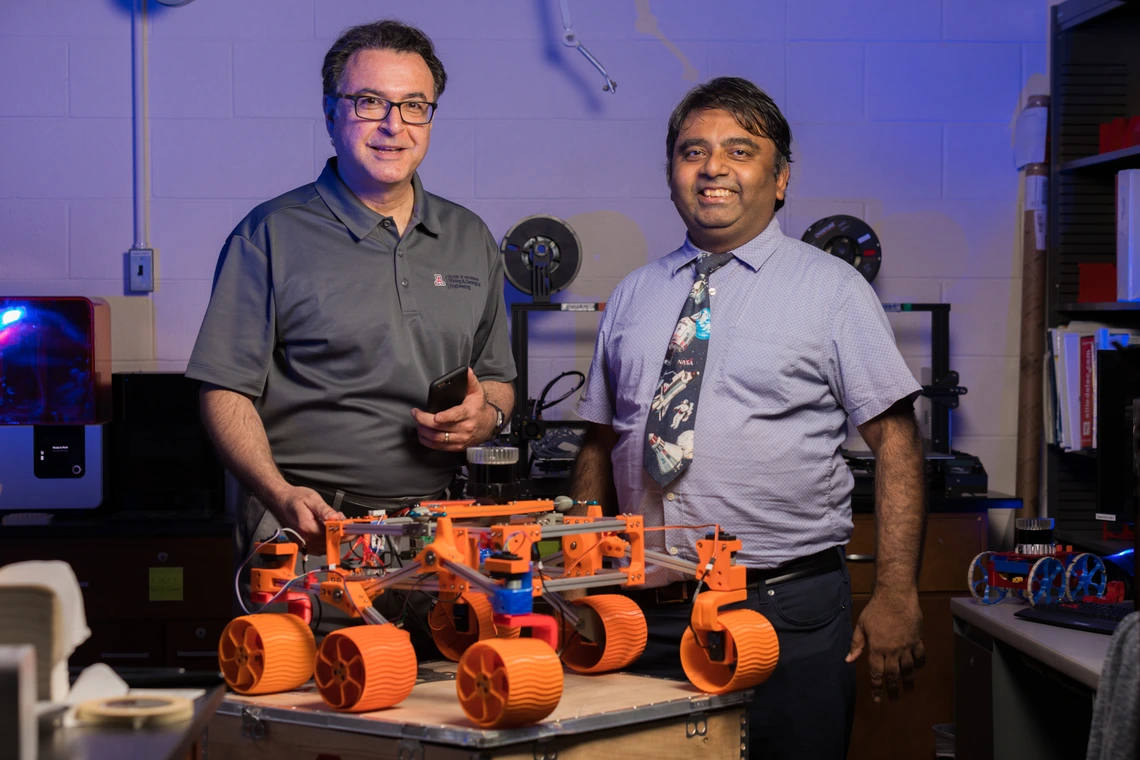Thanga Designing Autonomous Robots for Solar System Exploration

AME associate professor Jekan Thanga is working with a $500,000 NASA grant to advance lunar mining with 3D-printed autonomous robots. But that is just one of his multiple ongoing projects. Scientia recently highlighted Thanga's many involvements at the intersection of robotics and space. Thanga is also working to design robots that are capable of exploring inhospitable places while searching for minerals and potential life. These types of robots can range from rovers to satellites. Thanga and his colleagues presented SphereX in 2014, a spherical robot that uses "hopping and rolling motions" to move across rugged terrains in low gravity.
According to Scientia, with new ways to access extreme environments with unfamiliar gravity, pressure and temperature conditions, researchers could finally answer fundamental questions about the origins and evolution of the solar system, the conditions required to sustain life, and the ability for off-world human settlements to gather the resources they need to survive in the long term.
